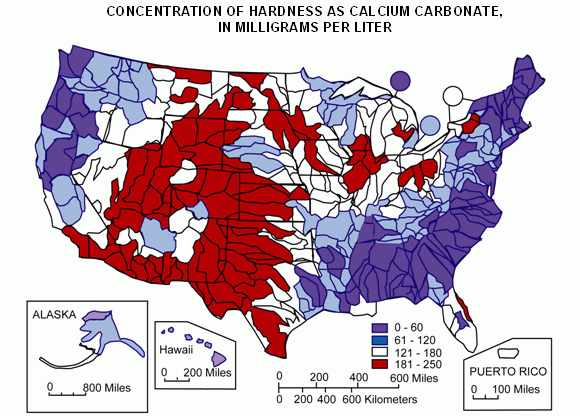Exercising due diligence for a real estate acquisition begins long before the letter of intent for the purchase of property. As part of the due diligence process, a site evaluation is typically undertaken after the purchase and sale agreement has been negotiated. Boiler rooms, and their associated systems and equipment, are often overlooked in these evaluations, even in the instance when a Property Condition Assessment (PCA)—also known as a Capital Needs Assessment (CNA) or Property Needs Assessment (PNA)—is required by a lender.
Your boiler room may not have been a problem for you—yet. But, if you don’t inspect the boiler room before closing on the sale, your residents and your investment are at risk.
Violations, Aging Equipment & Inefficiencies
Installing equipment you didn’t anticipate or having to scramble to comply with code can be costly and frustrating.
The Property Condition Report (PCR) that is derived from a PCA should outline which systems are likely to fail in the near future or are not in compliance with current code. A thorough assessment of the boiler room may also uncover other existing code violations like inadequate insulation, lack of outdoor-rated equipment where required, missing backflow preventers and more. However, sometimes PCRs are “awaiting response” from the relevant authorities before the acquisition of the asset is finalized, and usually, time is of the essence.
Failure to identify these issues can result in financial penalties and significant unanticipated costs, or worse—system failure. For example, a client recently shared a quote of almost $80,000 for the installation of backflow preventers at only one property! This should have been identified during due diligence, which would have allowed this expense to be built into the purchase and sale agreement.
Code compliance requirements vary by jurisdiction, so it is important to work with a partner who is familiar with local, as well as national, code requirements during due diligence.
The Boilers
Despite being such an important and fundamental mechanical system of the property, boilers seem to be forgotten all too frequently during acquisitions. A new boiler fully installed can cost from tens to hundreds of thousands of dollars—a significant, unforeseen capital expenditure, especially for a property with multiple boilers that fail.
When you do look at the boilers, consider their efficiency. With condensing boilers at 95% efficiency available for many applications, safety, fuel efficiency, and lower utility costs can be locked in for the 15-20 year life span of the boiler, keeping residents happy with reliable heat and/or hot water. Efficiency statistics are typically listed on the nameplate. As is the serial number, which can be used to uncover the boiler’s age by visiting the Building Intelligence Center website.
Water Chemistry
Another important consideration is water chemistry. It will vary by place of origin and utility, and seasonality is also a factor. Areas with hard water, or high pH levels, make boiler systems susceptible to limescale build-up on their internal components, which causes mechanical failures. Boiler manufacturers publish the acceptable hard water/pH tolerance for their equipment. If water hardness is found to be above allowable levels, and there is no functioning water treatment system in place, then mechanical failures caused by limescale are not covered under most warranties.
I have seen instances where all of the boilers across a property consistently malfunctioned due to limescale build-up. The results were painful: extremely dissatisfied residents publicly posting on Yelp and a significant expenditure to replace all of the boilers.
If there is visual evidence of limescale in the existing boiler rooms, a water softening or filtration system should be in place and adequately maintained to prevent system failure. A litmus test of the tap water furthest away from the boiler will determine if the pH level is within the acceptable range. There are many companies that provide water treatment systems and maintenance that will address limescale or pH issues. Also, note that it is a good idea to flush the system to dissolve existing limescale before a water treatment system is installed.
The good news is that water hardness reports are published by utilities, as well as the U.S. Geological Survey. They can be regularly monitored by the service contractor and/or on-site staff to keep levels within the tolerance recommended.

Acquire with Confidence
Before you acquire a property, a boiler room visit is a must. Bright Power strongly suggests hiring a reputable firm to produce your PCR, with a particular focus on the boiler room(s), regardless of lender requirements.
The PCR, through its Immediate Repairs and Replacement Reserves sections, estimates the remaining useful life of a boiler or hot water heater. It also contains any outstanding responses required to determine code compliance of core systems at the property. These observations made by the selected consultant should be understood prior to close, and carefully reviewed and considered during due diligence and underwriting.
Through the PCR, you will ensure that the sale price is congruent with the property’s appraised value. And you will have the knowledge to incorporate deferred maintenance or immediate capital replacement projects into your post-acquisition year 1-3 budgets. This is important because it is often difficult to add efficiency projects—or other projects that were not identified in the PCR, or identified as part of an independently developed value add strategy—after the fact.
Don’t expose yourself or your investors to unforeseen capital expenses or catastrophic system failure. Make the boiler room an integral part of your due diligence efforts and you will be able to effectively maintain the asset in the short- and long-term.
Are you worried your PCR did not adequately cover the boiler room? We can help.